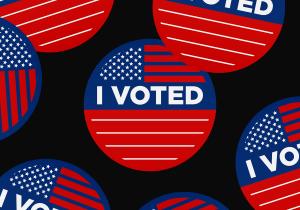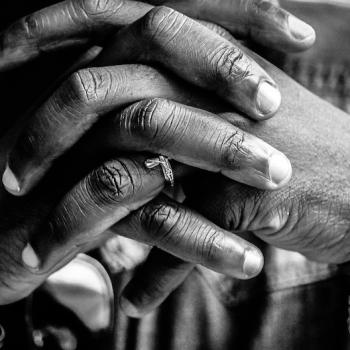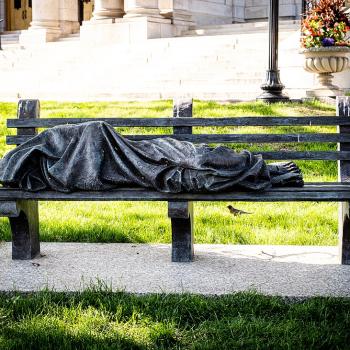2020 was the year that I awoke to the political world around me. It was a chaotic year for many, many Americans. This was the year I began to really ask myself, “How should Christianity relate to politics?”

The Jericho March
Prior to 2020, I was definitely interested in politics. Starting in 2016, I really began to think about race, culture, economics, and political power. But it wasn’t until 2020 that I found that there exists a very important link between politics and religion in the American context.
In December 2020, Rod Dreher published an article on The American Conservative. This was the article that connected the dots for me. Dreher wrote about what came to be known as the Jericho March.
The march was headed by what Dreher calls the “activist Christian right,” along with some American Jews. It took place after former president Donald Trump lost to current president Joe Biden. Activists claimed that the election was stolen and fraudulent.
Eric Metaxas, a thoroughly disproven biographer of Martin Luther and Dietrich Bonhoeffer, was the emcee for the event. MyPillow founder Mike Lindell was there to give a speech and sell his product. Americanized traditional Catholics like Archbishop Carlo Maria Vigano were also present. Even Alex Jones of Infowars fame gave his emphatic enthusiasms.
These people shared visions they received about how God told them the election was stolen. They described Trump as an instrument in the Redeemers hands. They said that God told them Trump’s victory was inevitable. If necessary, they would fight for it.
As Dreher concludes,
Based on what I saw today, the Christians in this movement do not doubt that Trump is God’s chosen, that they, by following him, are walking in light, and whatever they do to serve Trump is also serving God. They have tightly wound apocalyptic religion to conservative politics and American nationalism.
How Do Christians Fit into the Two-Party System?
Seeing so many Christians on fire for Trump, I began to wonder if this was the way. Can Christians really make a messiah out of a politician? Sure, God made King Cyrus His messiah (Isaiah 45:1). But we only know that because God Himself revealed it to us in His Word.
One day my mentor sent me an incredible article written by the late Timothy Keller. This article was titled, “How Do Christians Fit Into the Two-Party System? They Don’t.” The title pretty much sums Keller’s main arguments up.
Keller made two major points that would stick with me for a long time. The first is that Christians should never put their political identity ahead of their religious identity. The motivation behind this point is to resist the dogmatization of declaring a singular political party as the only properly Christian one.
The second major point is that Christian values are represented on both major parties. Concern for the poor and the oppressed are historically Christian prerogatives, and as Keller saw it, these are emphasized on the Left. Conservative sexual ethics, however, are emphasized on the Right. This point was made to foster tolerance amongst Christians who vote for candidates on either side of the aisle.
Can Christians Vote Their Values in a Two-Party System?
As I said, this article served to ground my political thought for the coming months. But as I learn more about the nature of American politics and more about political theology, I realize that we must go further. Keller was right. Christians do not fit into the two-party system. But this entails more than what Keller drew from it.
Yes, we shouldn’t be politically dogmatic when it comes to which party we vote for. And yes, let’s respect each other’s voting decisions as a matter of conscience.
But Christians face a much deeper issue that Americans in general face: the two-party system itself.
See, the Republican and Democrat parties are the two major parties that Americans can vote for. Often, they are the only parties Americans can vote for. Due to increasing polarization between these two parties on economic, sexual, cultural, and epistemological matters, these parties are being driven to ever-increasing ideological extremes. The result has been a growing discontent with both the two-party system and the two parties themselves.
As Howard J. Gold at Smith College finds in his study,
There is no question that public disdain for both the Democratic and Republican parties has grown considerably since the mid-1990s. . . . Increasing numbers of Americans have come to see the parties as ideologically far apart, with large percentages stating that the Republicans are too conservative and that the Democrats are too liberal.
Indeed, Gold finds a paradox at work amongst Americans. Even though more and more Americans are coming to find that neither party truly represents their interests, they are uncomfortable with introducing new parties that would.
A Better Critique
Making a better critique of the two-party system from a Christian perspective must keep this discontent in mind. Since the two major parties are becoming increasingly polarized despite being lobbied by the same corporations, Christians not only do not fit into the two-party system. They cannot!
In fact, not many Americans can. Instead of presenting Christians as somehow uniquely out of place, above and beyond the two-party system, Christians must recognize that they share this sense of being out of place with many of their civic neighbors.
Rather than voting for the lesser of two evils (in the current presidential rematch, both candidates present themselves as the not-so-bad option), Christians should join their neighbors in creating a party system that works for the people. So long as the Democratic party presents itself as the savior of America from Republicans and vice versa, the American people can only ever vote for the party that they believe is at least not as bad as the other one.
But is that really a government by the people and for the people?
Moving Past the Two-Party System
To truly vote Christian values, to vote any values at all, the two-party system must end. The options are too limited. To gain votes, politicians in either major party will compromise on their promises or radicalize their ideology. Do the American people really want what the two-party system has to offer?
The way forward is by no means an easy one, nor a safe one. Both Republicans and Democrats benefit from increasing division and polarization. Because with more national animosity, they make Americans more dependent on them to save America from “the enemy.”
But something has to change. Even if more parties do not get their folks into office right away, the two-party system must be chipped away little by little. The American people, including the American churches, must take one leap of faith after another in order to make room for parties that will truly represent people’s values. Then, the people will have their voices heard, rather than being forced into political dependency on a party that wants their votes more than it wants to represent their voters’ values.
















